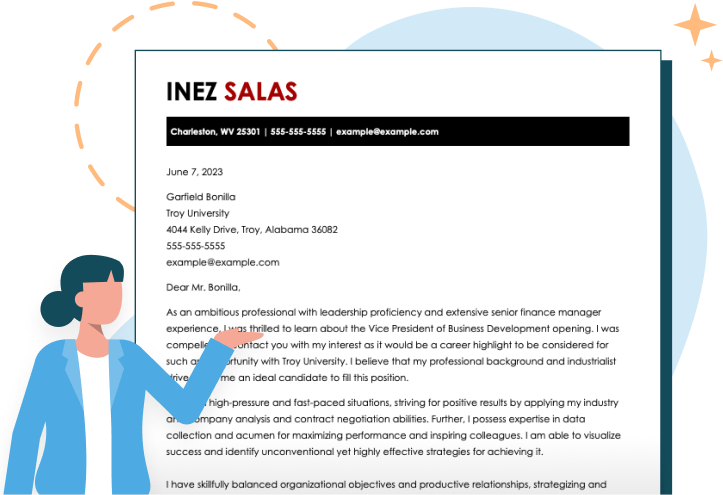- Featured in:
Find More Metal Work Cover Letter Examples
Free Welder cover letter example
Dear Ms. Anderson,
I am writing to express my interest in interviewing for the position of Welder. I am confident the skills and abilities I’ve honed during my two years of experience as a Welder can be an asset to your organization.
During my professional experience at Sunrise Welding I specialized in Mig and Arc welding and became proficient in the corresponding welding tools. I also have a welding certification From Liberty Technical Institute. I think the combination of my education and experience make me a great fit for Synergy Welding.
The following are the highlights of my qualifications and achievements:
Routinely analyzed blueprints and diagrams in order to make the visions of the designer a reality
Analyzed and selected source metals based on company quality control policies
Earned welding certification from Liberty Technical Institute
Received 5 percent pay raise based on rate of production
Learned principles, tools and techniques of Mig and Arc welding.
In addition to these achievements, I think my love for working with my hands and my dedication to detail are two qualities that set me apart from other candidates. My experience at Sunrise welding has helped me hone my problem solving skills and has made me a great active listener. I—d love to discuss the opportunity to bring my skills to Synergy Welding in an interview.
Sincerely,
Delbert J. Ross
Include These Welder Skills
- Welding certification from a vocational school or apprenticeship program
- Proficiency with welding tools
- Attention to detail
- Manual dexterity
- Problem solving skills
- Logic and reasoning skills
- Reading comprehension skills
- Active listening skills
- Knowledge of different welding tools and techniques
Metal Work Resume Examples



